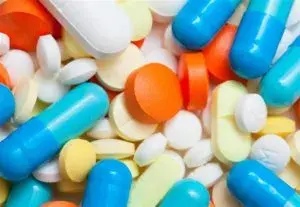The need to revamp the Drugs and Cosmetics Act, 1940 and free it from unnecessary criminal provisions has been gaining traction for some time now. Accordingly, a high-level government committee has been constituted to deliberate decriminalizing certain offences and omitting certain penal provision provided in the Act for quality related failures or defaults.
The eight-member committee, headed by the Drugs Controller General of India (DCGI), Dr. V.G Somani, and further comprising of a few State level drug regulators along with an official from the Health Ministry is set to draft new legislations for drugs, cosmetics, and medical devices to replace the present Drugs and Cosmetic Act, 1940.[1]
What is Drugs and Cosmetics Act, 1940?
The Drugs and Cosmetics Act was enacted to regulate the manufacture, import and distribution of drugs across India, and ensure that consumable chemical products, namely drugs and cosmetics, and also medical devices reaching consumers are effective, safe and conform to the quality norms set out by the Act. The original act was formulated based on the recommendations of the Chopra Committee, constituted in 1930 by the pre-Independence Government of India, under the leadership of Mr. R.N. Chopra. The term “drug” as defined in the Act covers a wide range of chemical substances, including therapeutic formulations and medical devices. “Cosmetics” under the Act means any article meant to be applied to the human body whether by means of sprinkling, spraying, rubbing or pouring on, for the purpose of cleansing or beautifying oneself. The Act also encompasses Ayurvedic and Unani drugs. The Drugs and Cosmetics Act has been amended many times since its enactment.
Why the proposed changes?
The present Drugs and Cosmetics Act regulating pharmaceuticals and cosmetics is prosecutable and lays down stringent penalties, both penal as well as financial (i.e. imprisonment and fine), in the event of sub-standard/spurious drugs, medical devices and cosmetic products. Under the present Act, a manufacturer accused of allegedly producing sub-standard/spurious products can be imprisoned even before the investigation is complete and his guilt proven and declared. Such provisions have been abused towards causing harassment to competitors or other innocents, and has also been a de-motivating factor for the industry as a whole. Thus, upon recommendations put forward by several stakeholders, including the Indian Drug Manufacturers’ Association, Bulk Drug Manufacturers Association, the Indian Pharmaceutical Alliance (IPA) representing the country’s biggest drug manufacturers, the Federation of Pharmaceutical Entrepreneurs, and other industry associations, the committee has, in principle, accepted their propositions to do away with penal provisions in cases where a patient has not actually been harmed, prior to establishing guilt of an accused, and preferring financial penalties instead. Keeping in mind the delay in disposing of cases in India it is unfair to detain an individual undertrial only upon suspicion as opposed to proof of guilt.
Conclusion
As per the Ministry of Health, the expert committee is expected to submit a draft Bill by November 30, 2021. While the move is hoped to be a progressive one, especially in delivering relief to unconvicted undertrials in harassment cases, the Bill will have the unenviable task of having to strike a fine balance between harassment cases and increasing cases of fraud and spurious drugs and other medical and consumer products, at a time when we are seeing a surge of counterfeit consumables amidst desperate consumer demand.
[1] https://economictimes.indiatimes.com/industry/healthcare/biotech/pharmaceuticals/panel-for-removing-penal-provisions-from-proposed-drugs-act-for-lapses/articleshow/86849564.cms
E- Pharmacies- New Law to Regulate Drugs and Medical Devices


